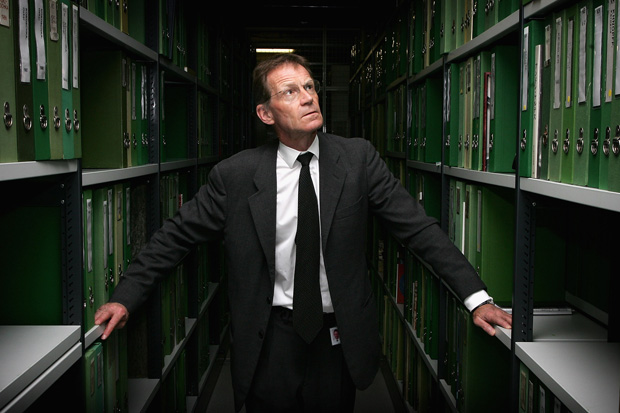At the last minute, a friend invited me to a ‘Distinguished Speakers Dinner’ at the Oxford and Cambridge Club earlier this week. The dinner was being hosted by Christ’s College and the speaker was Sir Nicholas Serota, director of the Tate galleries and one of the college’s alumni. His subject was ‘The arts in education: luxury or necessity?’, which is why my friend thought I might be interested. Indeed I was.
There’s an awful lot of bunkum talked about the arts in education and I’m afraid Sir Nicholas’s speech was no exception. Nothing wrong with the overall thrust of his argument — that arts subjects in schools and universities should enjoy parity of esteem with Stem subjects, as well as with academic humanities like history and geography — but he exaggerated the extent to which arts subjects have been downgraded since 2010.
I should say that Sir Nicholas is hardly exceptional in this regard. The view that the arts have been under attack for the past five years, particularly in schools and universities, is ubiquitous across the artistic establishment. It is part and parcel of the liberal intelligentsia’s de haut en bas attitude towards Conservative politicians, who are caricatured as ignorant philistines with no cultural ‘hinterland’. He quoted Michael Gove telling him, shortly after he’d become Education Secretary, that he didn’t think the arts should be included in the national curriculum at all. No doubt this was a misunderstanding on Sir Nicholas’s part, because when the new national curriculum came into force last year the arts were no less prominent than they were in the old one. I know this because I co-authored a book on the new primary national curriculum called What Every Parent Needs to Know and I was responsible for writing the chapters on all the arts subjects, about a third of the total.
The secondary curriculum is more controversial, not because the arts have been sidelined in Key Stage 3 (11–14) — no change there — but because of the introduction of the English Baccalaureate in Key Stage 4 (14–16).
It’s worth reminding people that the ‘EBacc’ isn’t an exam or a certificate. Rather, any pupil who obtains grade C or above in five particular GCSE subjects (English, maths, science, a humanities and a language) can be said to have earned an EBacc. It’s not mandatory, but schools that don’t ask their pupils to do five EBacc subjects won’t be eligible for the Ofsted ‘Outstanding’ grade and from next year all schools will be expected to meet a ‘floor standard’ whereby their pupils are expected to make a specified amount of progress in eight GCSEs, including five EBacc subjects. This measure, which will be included in the league tables, will be known as ‘Progress Eight’.
Lots of arts people have worked themselves up into a fit of rage about this because the EBacc doesn’t include any arts subjects — and to be fair, when the EBacc was first introduced in 2010 some schools may have reacted by advising pupils to do fewer arts subjects at GCSE. But ‘Progress Eight’ is designed in part to remedy this. In addition to English, maths and three subjects from the EBacc pot, pupils can now choose three more subjects from a third pot that includes all the arts subjects — drama, dance, music, you name it. Provided they choose no more than three of these, their schools won’t be penalised.
In the light of this, it seems unlikely that this new performance measure will lead to a lower take-up of arts subjects in Key Stage 4. Indeed, there’s no evidence that the EBacc, even in undiluted form, has had this effect so far. According to Nick Gibb, the schools minister, total entries for arts GCSEs have increased since 2010, as has the percentage of pupils entered for at least one GCSE in an arts subject.
So why the defensive noises from Sir Nicholas and other arts panjan-drums? It’s not just because it conforms to their anti-Tory prejudices, although that’s a large part of it. It’s also that nearly everyone in the arts likes to think of themselves as anti-establishment rebels — even Companions of Honour like Sir Nicholas. That way, they can cast themselves as on the side of the poor and dispossessed, rather than the rich and the powerful. That must be quite soothing when accepting a payment or charitable donation from a Russian oligarch.







Comments